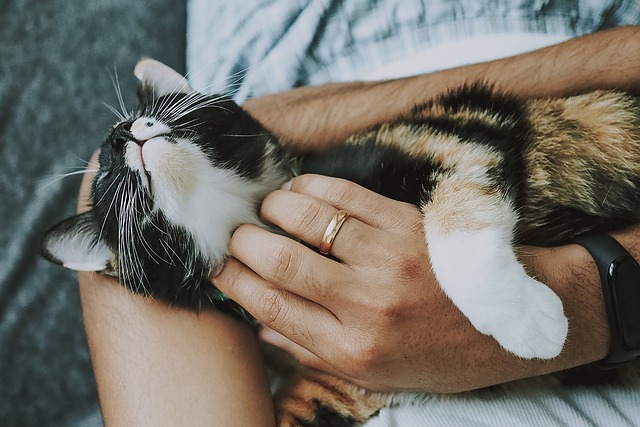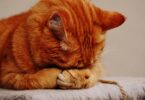Hamburger or mixed salad, food is not just about nutrition, but also a great way to socialize. Whether you’re making your family’s secret shortbread recipe or making an appetizer dinner with friends, food is life. And maybe you want your family’s mini-feline to join in the festivities.
A varied diet is essential for humans, but cats have a different digestive system from ours. While some “human foods” are not toxic, and sometimes even beneficial as part of a cat’s diet, others can cause temporary or permanent damage to their fragile immune systems.
Here’s what you need to know about cat food consumption for humans.
Can cats eat human food?
It depends. Cats are born and grow up as strict carnivores, so our omnivorous diet does not have the same benefits for felines. In the wild, cats feed primarily on birds, pests, and even insects, all of which have essential amino acids that help keep the cat’s digestive system functioning optimally.
Cats have always been particularly sensitive to odors, and can sometimes be difficult when it comes to meals. Domestic cats tend to prefer a steadfast feeding routine, and changing it can disrupt them. This is why the introduction of new foods normally intended for humans may receive a mixed reception from your cat, depending on their personality.
Can cats eat vegetables or fruit?
Packed with fiber, vitamins and minerals, fruits and vegetables is a no-brainer in terms of human nutrition. Unlike us omnivores, cats are not naturally attracted to the fruit. They do not have the necessary requirements to taste the sweet flavor. However, fruits may be of interest to them because of their crunchy or novel texture.
While most fruits are not poisonous, too much sugar in a cat’s diet can cause digestive issues or diabetes over time. It is strongly recommended not to give cats fruit in large quantities, especially instead of meals.
However, some fruits are dangerous for your cat:
• Citrus fruits: All citrus fruits contain some level of citric acid, which can cause nervous system problems in large enough doses; it causes gastric disturbances at lower doses.
• Raisins / currants. They are toxic and present a choking hazard for cats
• Coconut or coconut oil. Technically a seed, but we’re including it here, as coconut can cause stomach aches in cats.
When it comes to vegetables, that’s a different story. Gary Richter, veterinarian an expert panel, said that “pet owners can try feeding cats with vegetables as part of their meals or as treats, before continuing:“ There are certainly good nutrients in vegetables when they are part of a balanced meal.
The following vegetables, however, are not toxic to cats, according to experts:
• Courgettes
• Celery (they love its crunch!)
• Carrots
• Green peppers
• Spinach (great source of vitamins A, C and K!)
• Peas (often found in many commercial foods for cats and dogs as a vitamin supplement)
• Pumpkins (often used as a source of fiber in cat food)
• Broccoli
Keep in mind that your cat is still a carnivore first and foremost, so use these alternative foods sparingly. Replacing full meals with vegetables will deprive your pet of vital nutrients found in properly formulated cat food. “Cats should basically get a balanced diet,” adds Dr. Richter. “Treats are generally unbalanced and shouldn’t be a significant part of their daily diet. ”
Seeds and cereals
Due to the carnivorous nature of cats, carbohydrates only make up 10% of their diet. Bread, cereals and other grain-based snacks are generally not toxic to cats as long as they are cooked properly if your cat ever wants to taste them.
Just like fruits, bread and grains should not be substituted for regular meals made up of protein, as they are processed in the cat’s digestive system like sugar, and in the long run, can lead to health problems like diabetes.
Symptoms of feline diabetes include:
• Excessive thirst
• Constant urination
• A lack of appetite
• An inability to jump
• Vomitings
If you are concerned about your cat’s carbohydrate intake, consider checking the composition of the foods you are feeding. Some ready-made meals or treats may indeed contain too much sugar, grains, or carbohydrates.
If you have the impression that your cat is behaving strangely because it is ingesting too many carbohydrates, contact your veterinarian immediately.
Eggs and dairy products
When we think of cats in children’s books, we think of cats drinking milk from a giant saucer. Interestingly, just like humans, many cats tend to be lactose-intolerant. Experts say a little cream or milk won’t hurt a cat (and they love it!), But many cats lack the enzymes essential for breaking down lactose.
Eggs, on the other hand, are perfectly edible, provided they’ve been cooked thoroughly. Many people scramble an egg and add it to a cat’s daily diet to provide protein. In fact, as Dr. Richter explains, eggs are a natural part of a carnivorous diet: “Cats are carnivorous, so animal protein is essential for their good health. Cat food should consist primarily of animal products. ”
Meats and proteins
We know cats are natural carnivores, but some meats are healthier than others. In fact, lean meats like turkey or chicken are perfectly acceptable, but processed meats like sausage or salami have a high sodium content. Make sure all the meat you feed your cat is well cooked to avoid any foodborne illness. If you think your cat has ingested raw or poisonous food, contact a Poison Control Center or your veterinary clinic.
Finally, remember that cats are very routine animals, and their stomachs don’t always like a novelty. Experimenting with different meals every now and then isn’t a problem, but they also need the essential nutrients found in cat food.







